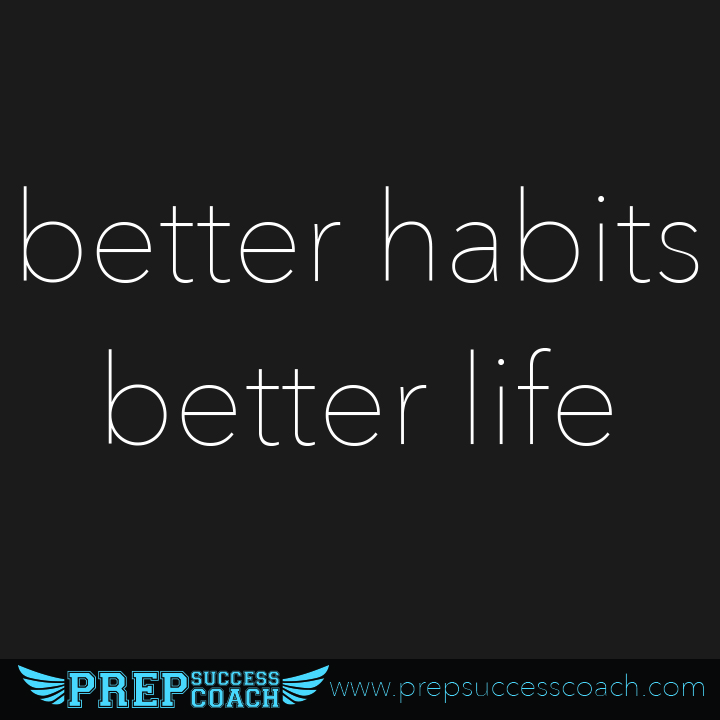”We are what we repeatedly do. Excellence is not an act, but a habit.”
-Will Durant summing up a work by Aristotle.
In the past year I’ve had the privilege of seeing many clients form not just good habits, but excellent habits. I want to share some examples and what I believe are the keys to helping people form new habits.
One of my goals for the young people I work with is to help them eliminate bad habits and turn good habits into excellent habits. The sooner we form excellent habits the better, and it is thrilling to see young people do so!
Habits I’ve seen formed this year:
• Creating a new morning routine, which includes showering everyday and eating breakfast.
• Working out on their own, without anyone telling them they should, but simply because “It’s what I do now and I love it.”
• “Time blocking” homework time every night instead of cramming at the last minute to get work done.
• Setting a game plan for every goal. “When I want something now, I set a game plan to get it.”
• “Communicating with my parents, teachers and coaches to let them know what I’m trying to accomplish.”
• “Practicing everyday, because I want to be my best.” This from someone who had aspirations, but no plan.
• “I don’t talk bad to myself anymore in sports. I’m positive now.”
Three things I’ve learned about kids forming new habits:
1, Creating rituals helps us form habits. We need a trigger or reminder to do the thing that we want to do until it becomes a habit and we own it. For example when I finish my last bite of dinner I say, “homework time.” When both feet touch the ground in the morning I say, “make my bed.” When I say something negative to myself in competition I then say, “No, you got this!” and tap my leg.
2, Different voices sometimes helps you hear what has been said all along. As a coach or parent it is amazing to see the advice/instruction that we have been giving for years come to fruition in a moment when it is spoken from a different voice. “I’ve been trying to get him to do that for years, how’d you do it?” While it would be nice to answer that question by claiming unique skills I believe it is more honestly, “because I’m not you.” Just as I’ve seen countless times my own children heed the advice of others when I’ve told them something what seems like a million times, the addition of a positive voice can make all the difference in forming new habits.
3, Setting your intentions before hand gives you the opportunity to remember the habits you are trying to build. “Today in practice I’m going to focus on seeing the ball the very best that I can” said to yourself on the drive to practice before you step on the court or field is a powerful tool to create habits. “Today in class I’m going to pay close attention when the teacher is instructing.” By learning to set our intentions AHEAD of time, we can jump right in to the habits we are trying to form, rather than midway through a situation saying, “Oh, I really wanted to do this… whoops.”
For those who truly want to excel, here’s an example of going from bad to good to excellent.
Team practice:
BAD HABITS – Show up late, do your own thing and don’t try hard.
GOOD HABITS – Show up on time, follow the directions and try hard.
EXCELLENT HABITS – Show up early, ask coach “how can I help lead” and try your best.
Homework
BAD HABITS – Don’t do it.
GOOD HABITS – Do it on time.
EXCELLENT HABITS – Do it with time to spare.
Practicing on your own
BAD HABITS – Don’t do it.
GOOD HABITS – Practice.
EXCELLENT HABITS – Deliberate practice, with goals and a game plan.
“Today I will do what others won’t, so tomorrow I can accomplish what others can’t.” -Jerry Rice
If you think your child could benefit from some upgraded habits, let’s talk!
josh@prepsuccesscoach.com


Join the conversation